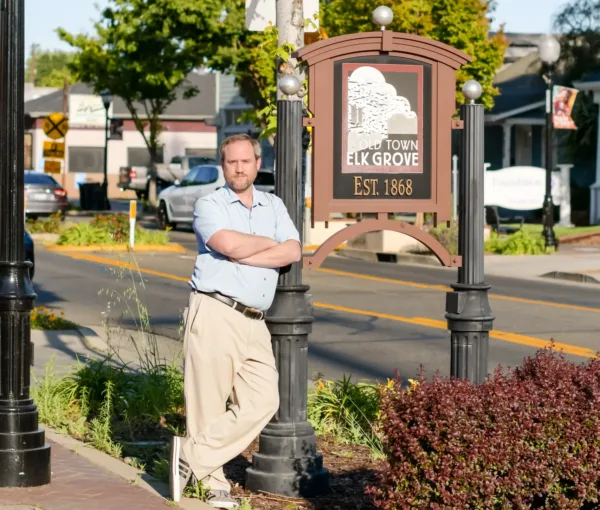Elk Grove Teachers’ Union Gets Civil Rights History Lesson
COMMENTARY BY ISAAC NEWMAN
A version of this commentary was originally published in The Sacramento Bee.
As a history teacher in Elk Grove Unified School District, I try to ensure that my students don’t learn the wrong lessons from the struggles of American history. But I taught my latest course on civil rights to adults in a courtroom, not students in a classroom.
I have been a union member for 10 years and have long disagreed with what I believe is its deeply flawed view of diversity, equity, and inclusion (DEI). Last year, when the union created a new “BIPOC” (black, indigenous, person of color) seat on its board, I saw an opportunity to change the union from within and decided to run for the position.
But when filling out the position’s nomination form, I discovered a mandatory checkbox stating, “The BIPOC At-Large Representative position is open to EGEA members who are a self-identified member of one or more of the following racial/ethnic categories…” A list of 11 racial identities followed. As a white person, it did not include me.
Since I could not truthfully check the box, I was barred from running for the board seat—simply because of the color of my skin.
I was dumbfounded. As a student, and teacher, of history, I knew that this type of racial segregation was banned sixty years ago. So, this past May, I filed a federal lawsuit with the help of nonprofit law firm the Fairness Center to desegregate my union’s board.
My lawsuit alleged that the union violated Title VII of the Civil Rights Act of 1964, which says it is unlawful for a “labor organization” to “discriminate against… any individual because of his race, color, religion, sex, or national origin,” and California’s Fair Employment and Housing Act.
Legal commentators lined up on my side. UC Berkeley law school dean Erwin Chemerinsky told the San Francisco Chronicle, “I think reserving a seat on the basis of race will be regarded by the courts as impermissible.” Sacramento civil rights attorney Jeffrey Kravitz explained to CBS13, “This is blatant discrimination.”
The union’s lawyers seemed to agree. In August, the union ended the board seat and passed a standing rule saying it would never practice racial discrimination in any other union position. Then it offered to accept a judgment against itself, requiring it to pay me $12,000 and to pay my attorneys’ fees.
A judge agreed and, this month, I accepted. To be clear, my fight was never about money. My family and I intend to donate every penny I receive from the union to a local Elk Grove scholarship fund.

(Isaac Newman. Photo credit: The Fairness Center.)
While I see this as a major victory, it’s just a part of an ongoing battle I have been fighting for years.
In 2021, my union and school district collaborated to impose 28 hours of DEI trainings on district faculty and staff. These trainings often correctly identify problems that face all Americans, but the solutions they propose show that they’ve learned the wrong lessons from history.
They proudly teach the very thing the civil rights movement sought to end: that people should be divided by race and measured by the extent of their victimhood rather than by their character.
One training refers to colorblindness and meritocracy as racist myths. In another, Robin DiAngelo—the “whiteness scholar” who, as the New York Times recently reported, has been accused of plagiarizing her Ph.D. thesis—explains that “as a white person in society, I have a racist world view.”
The underlying message is that my “whiteness” makes me—and my children who are students in the district—innately morally inferior.
Yes, because of my litigation, union officials have backed down from explicit segregation, but they are still pushing this racial agenda as far as they can. The union has replaced its illegal board position with one that “encourages” non-whites to run. Imagine the outrage if the roles were reversed and the new position encouraged only whites to run!
Clearly, someone needs to hold the union to its commitment. That is why I am now running to join its leadership as I previously intended. If successful, I will promote diversity of thought, equity that fairly rewards merit, and inclusion for all employees without regard to race. And I hope that someday soon school officials and others in the union’s leadership will, too.
Isaac Newman teaches history in Elk Grove Unified School District in Sacramento County. The author’s viewpoints are their own and do not necessarily represent those of the Fairness Center.
